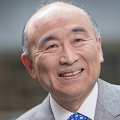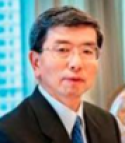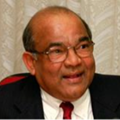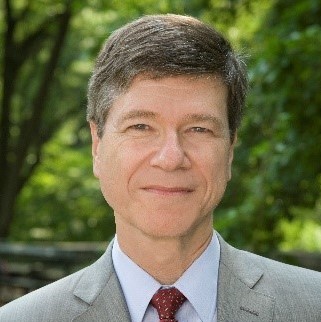


![]() JOIN THE CONVERSATION: #IMFASIA
JOIN THE CONVERSATION: #IMFASIA
Asia has made remarkable progress over the past fifty years and is now at the forefront of the world economy in many ways—the region is the predominant driver of global growth, the nerve center of world trade, and an increasingly important contributor to the knowledge frontier. But Asia’s economic performance now faces fundamental challenges, including a possible global move toward protectionism, slowing productivity growth, rapid population aging in some countries, and the digital revolution, which may be as disruptive as they are transformative. What will these trends mean for the region, and what can policymakers do to ensure that Asia remains at the forefront of the world economy over the coming fifty years? The seminar will cover a wide range of issues including trade as an engine of growth; boosting productivity growth; addressing population aging; and the digital revolution. Some of these themes will also be discussed in our forthcoming Regional Economic Outlook Asia at the Forefront: Growth Challenges for the Next Decade and Beyond.
Moderator: Stefania Palma, Singapore Correspondent, Financial Times
Opening Remarks: Mitsuhiro Furusawa, Deputy Managing Director, IMF
Panelists:
Yiping Huang, Professor, National School of Development, Peking University
Takehiko Nakao, President, Asian Development Bank (ADB)
Y. V. Reddy, Former Governor, Reserve Bank of India
Jeffrey Sachs, Director, Center for Sustainable Development, Columbia University
Asia has made significant progress over the past fifty years and is at the forefront of the world economy in many ways. Notwithstanding this progress, Asia faces fundamental challenges, including a possible shift toward higher protectionism, slowing productivity growth, rapid population aging in some countries, and the digital revolution. The seminar covered a wide range of issues including trade as an engine of growth, boosting productivity, addressing population aging and the digital revolution.
Key Points:
· Growth and trade. Nakao argued that an escalation in trade tensions would not have a large effect on regional growth based on the positive impact of a redirection in trade on some countries and reforms in China to increase its reliance on domestic demand. Huangagreed and noted that the bulk of the value added in China’s exports to the United States is from other countries.
· Tariffs and retaliatory measures. Sachs stressed the importance of efforts to ensure that all countries abide by international rules and underscored that countries should address trade disputes through the World Trade Organization, rather than through unilateral tariffs.Reddy noted the need for countries to first assess the impact of retaliatory steps, particularly in today’s context where countries are highly integrated. Huang noted that notwithstanding the stance of the United States, China should focus on continuing the market-oriented reforms and international integration that have contributed to its success.
· Productivity. Sachs noted the key role of digitalization in supporting productivity and that the Belt and Road Initiative, if properly implemented, could rapidly upgrade Asian technology. Huang highlighted that digitalization is helping to address the middle-income trap and expand financial services in China, including to small and medium-sized enterprises. While noting the fall in productivity in Asia after the global financial crisis, Nakao questioned whether it continued to decline and argued for greater focus on promoting education, innovation, and digitalization, supported by sound macroeconomic policies.
· Population aging. Reddy underscored that migration could play a vital role in addressing population aging and agreed with Huang, Sachsthat digitalization could also help to mitigate the impact of aging. Sachs argued the benefits of having a declining labor force in the current environment of technological advancement but agreed with Nakao that governments will have to tax more to fund increasing costs from aging.
· Women’s participation. Sachs highlighted quality childcare and family support provisions, such as in Scandinavia, as key measures to improve women’s participation in the labor force.
· Digital revolution. Sachs noted the relatively low levels of taxation in Asia and stressed the importance of redistributive policies to address the negative impact of digitalization on income equality.
Quotes:
“Not just open trade, but open investment, open migration, and open exchange of ideas is fundamental to growth in the region” Yiping Huang
“(On trade tensions) there is a bit of a rebalancing between globalism and nationalism, real and financial sector. These are the types of issues that are going to determine if what has just started are simply symptoms (of a larger issue)” Y. V. Reddy
“The trade dispute is very dangerous… It should be resisted. The United States is breaking international trade rules, violating international standards, threatening the Asian economies, and threatening the world economy” Jeffrey Sachs
“(On expanding the labor force) it is not just about reaching a certain target for growth, but it is about providing better opportunities for the aging and women to work in very productive and interesting ways” Takehiko Nakao
Contributor: Rasheeda Smith Yee
 |
| Mitsuhiro Furusawa |
| Deputy Managing Director, IMF |
Mitsuhiro Furusawa assumed office as Deputy Managing Director of the International Monetary Fund on March 2, 2015.
Mr. Furusawa joined the IMF after a distinguished career in the Japanese government, including several senior positions in the Ministry of Finance in recent years. Immediately before coming to the Fund, he served as Special Advisor to Japanese Prime Minister Shinzo Abe and Special Advisor to the Minister of Finance. Among his recent ministry postings, Mr. Furusawa served as Vice Minister of Finance for International Affairs (2013-2014), Director-General of the Financial Bureau (2012-2013), and Senior Deputy Director-General of the International Bureau (2009-2010).
Mr. Furusawa’s overseas postings for the Japanese government have included IMF Executive Director (2010-2012), Minister (Finance) at the Embassy of Japan in the United States (2007-2009), and Counselor (Finance) at the Embassy of Japan in France (1997-1999).
A 1979 graduate of the University of Tokyo with an LL.B. degree, Mr. Furusawa also graduated in 1983 from the École Nationale d’Administration in Paris.
 |
| Stefania Palma |
| Singapore Correspondent, Financial Times |
Stefania Palma is the Financial Times Singapore correspondent covering the city state, Malaysia and Indonesia.
Prior to joining the FT, she reported from across Asia-Pacific interviewing finance ministers, central bank governors and bank CEOs as Asia editor at The Banker.
She read for a MPhil in Modern Chinese Studies at the University of Oxford and completed archival research at Peking University. She has a BSc in Economics from SOAS, where she first started studying Mandarin Chinese.
| Yiping Huang |
| Professor, National School of Development, Peking University |
 |
| Takehiko Nakao |
| President, Asian Development Bank (ADB) |
Takehiko Nakao is the President of the Asian Development Bank (ADB) and the Chairperson of ADB's Board of Directors since April 2013. Before joining ADB, Mr. Nakao was the Vice Minister of Finance for International Affairs at the Ministry of Finance of Japan and held various senior positions within the Ministry of Finance and the Japanese government, including Director-General of the International Bureau of the Ministry of Finance, and Minister at the Embassy of Japan in Washington D.C. He also served as an economist and advisor at the International Monetary Fund from 1994 to 1997. He holds a Bachelor's degree in Economics from the University of Tokyo and a MBA from the University of California, Berkeley.
 |
| Y. V. Reddy |
| Former Governor, Reserve Bank of India |
Yaga Venugopal Reddy, better known as Y.V. Reddy, was the 21st Governor of the Reserve bank of India from 2003–08 and the Chairman of the Fourteenth Finance Commission of India from February 1, 2013 to December 31, 2014. Between 2008–13, Reddy has been active in academia, and was associated with University of Hyderabad, Indian Institute of Technology, Madras, and Columbia University, New York. He served as a member of the United Nation’s Commission of Experts on Reforms of the International Monetary and Financial System
 |
| Jeffrey Sachs |
| Director, Center for Sustainable Development, Columbia University |
Professor Jeffrey Sachs serves as the Director of the Center for Sustainable Development at Columbia University. During 2002 to 2016 he served as the Director of the Earth Institute. Sachs is Special Advisor to United Nations Secretary-General António Guterres on the Sustainable Development Goals. He is also Director of the UN Sustainable Development Solutions Network (under the auspices of UN Secretary-General Guterres), Chair and Founder of SDG USA (a non-governmental initiative to promote sustainable development in the United States), and co-f ounder and Chief Strategist of Millennium Promise Alliance.